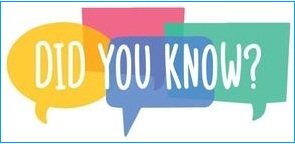Coaching FAQs
Success coaching is a powerful approach to help you reach your personal and professional improvement. But many folks have questions about success coaching. Here I'll answer the most commonly asked questions regarding the coaching process, what it's like to work with a success coach, and the results you can expect from working with a success coach.
What exactly is coaching?
Coaching is a partnership between a coach and a client in which the coach uses specific tools and methodologies to help the client achieve his or her goals. For example, if your goal is to advance in your career but feel stuck, a career coach can provide the strategies and guidance to help you overcome these hurdles.
Is coaching similar to therapy?
While both coaching and therapy can foster personal development, the focus of coaching is on moving forward and achieving specific goals, while therapy often deals with healing past traumas or managing mental health issues. For instance, a coach may help you strategize ways to improve your leadership skills, whereas a therapist would help you cope with past traumatic experiences that affect your current leadership. NOTE: there is a certain amount of overlap between coaching and therapy, since coaching must sometimes resolve past issues in order to move forward, and therapy can help clients learn new approaches after resolving past issues. Neither discipline will "tell a client what to do", but instead will help the client choose healthier, more productive approaches in any given scenario.
What is NLP?
NLP stands for Neuro-Linguistic Programming, a psychology discipline that explores the links among neurological processes, language, and learned behaviors. A coach who is also a certified NLP practitioner can help you address limiting beliefs, values and/or identities that hinder your ability to meet your goals. NOTE: if you Google "NLP", you may also bring up a lot of pages regarding recent research, development and/or applications of Artificial Intelligence (AI). This is because the computer software used to create AI is known as Natural Language Processing, which also carries the acronym "NLP". If doing research on Neuro-linguistic programming, you may want to use the full term in order to get relevant search engine results.
What can I expect from my first coaching session?
Typically, your first session will involve a discussion about your goals, the challenges you face, and what you hope to achieve through coaching. For example, you might discuss your goal of overcoming procrastination (or starting a new business, or improving your sports performance). Then you and your coach will create a preliminary action plan. Your coach will also typically work with you to build a more detailed to-do list that you'll complete before your next session. This is a critical step, because it is in these little weekly steps that we either make progress, or figure out where the obstacles are. Both are required to finally achieve a goal, so both are constructive steps forward.
How does a coaching session usually work?
A coaching session often involves a conversation between the coach and the client where they discuss the client’s goals, the progress made, and any challenges. For example, if your goal is weight loss, in a typical session, you would discuss your eating habits, workout routine, circumstances where you do or do not stick to your eating plan, and any other potential roadblocks. Like our first coaching session, the coach will ask what you were able to get done since the previous session, and what obstacles you encountered. You and your coach will then address any obstacles that you encountered. Finally, you'll leave your session with a new to-do list towards reaching your goal.
How frequently should I have coaching sessions?
The frequency of the sessions depends on your needs and the complexity of your goal. Many clients start with weekly sessions. Sometimes they stay with weekly sessions throughout. Other clients will need less frequent check-in's. For instance, if you're launching a startup, you may initially benefit from weekly sessions and then adjust as your business grows. Many coaching clients will eventually join a mastermind group run by their coach, to provide ongoing support and inspiration even after the initial coaching program has concluded.
How long does a coaching relationship last?
The duration of the coaching relationship varies greatly, from a few months to a year, depending on the nature of your goal. For example, if you aim to improve your public speaking skills for presentation at a big conference, you might need only a few months prior to that conference. However, long-term business development might require coaching until those specific development goals are reached. Note that most coaches will either encourage or require you to set a specific date by which you want to achieve your goal. Sometimes that is created by the goal itself, for instance in the conference example listed above. However, even if your goal doesn't already involve a specific date, your coach will help you set a date by which you want to reach a certain milestone. Then you and your coach will work backwards from that date and set mini-milestones so you can track your progress.
How is progress measured in coaching?
As we explained above, progress is usually measured by the degree to which you reach your stated goals and the improvements you make in between. For instance, if your goal is to improve leadership skills, progress may be measured by feedback from your team or noticeable changes in your job performance. That being said, coaches will encourage you to create and document measurable goals so that you can easily determine that progress. Check out the SMART Goal-Setting page for more information about creating measurable goals.
Can coaching help with personal life issues?
Yes, coaching can effectively help with personal goals and challenges such as self-confidence, relationships, and stress management. For example, if you struggle with work-life balance, a coach can help you develop strategies for managing your time and priorities, and then help you measure your progress. NOTE: Some coaches take clients for any kind of coaching, while other coaches specialize in certain categories, ie Career vs Family vs Academic vs Sports. Be sure to ask your coach whether he/she has a specialty. If you have goals outside your tentative coach's focus, feel free to ask for a referral to another coach who already works with your intended goals.
Is coaching expensive?
The cost of coaching varies widely, depending on your specific needs, the coach’s level of expertise, and the length of your coaching program. However, consider it as an investment in your success and wellbeing. For example, working with a coach to improve your communication skills, confidence or creativity can lead to a promotion or improved business performance and/or increased salary, thus offsetting the initial cost for coaching.
What if I can't afford coaching?
Instead of one-on-one coaching, consider group sessions or specific topic packages. Many coaches offer such packages and/or reduced rates for group coaching. Either approach can make the overall coaching process more affordable. In the group setting, you will also benefit from the questions and experiences of others in your group.
What is the role of a coach?
A coach's role is to teach you "the recipe" for achieving success. Many coaches will use the SMART goal-setting platform to create the roadmap for reaching your goals, then help you create a plan for achieving your goals. Then the coach will work with you regularly and hold you accountable to following that recipe. If you encounter obstacles or resistance along the way, the coach will help you work through them so that you stay on schedule and on track towards your goals. NOTE: a coach will NOT tell you what to do. He or she will instead teach you how to come up with your own ideas, options and choices. He or she will also help you work through obstacles if/when they occur, by addressing the mindset and/or skillset issues which create them.
How do I choose a coach?
Choosing a coach requires considering their qualifications, experience, and fit with your personality and goals. Regardless of your individual goal, look for a coach with substantial training in helping people work through obstacles, improve skillset and mindset, and hold clients accountable. Keep in mind that a coach is not supposed to be a friend per se, but rather a combination mentor, taskmaster and trail guide. NOTE: Many people believe that they need to find a coach who has expertise in their particular activity or industry. Some coaches who specialize in a given topic will indeed have extensive experience in that topic. However, a qualified coach will focus more on teaching you how to apply the general principles of success to your particular circumstances, regardless of whether that's sports, or school, or work, or family life. A consultant, on the other hand, is used to give you specific recommendations for specific industries or topics. So a consultant would definitely need to have expertise in your circumstances.
Can I switch my coach if we're not a good fit?
Absolutely. It's crucial for the coaching relationship to be built on trust and compatibility. If, for example, you realize your coach's approach doesn't align with your learning style after a couple of sessions, discuss this with your coach. Reputable coaches will be able to refer you to other colleagues who may suit your needs better.
Will a coach tell me what to do?
No. A coach will guide you towards solutions rather than prescribe them. For instance, rather than telling you to quit your stressful job, a coach may help you explore various options to reduce stress. Another analogy is to think of your coach as a driver's ed instructor. He or she won't teach you to turn left here and right there to reach a particular location via a specific route. Instead, a coach will teach you how to drive safely and successfully, so that you can drive your life wherever you want it to go. NOTE: Also, see the notes under How To Choose A Coach, about working with consultants.
Do coaches specialize in specific areas?
Yes, coaches often specialize in specific areas such as career, health, relationships, finance, or life transitions. For instance, if you're dealing with a midlife career transition, you would look for a coach who specializes in this area.
Can I do coaching sessions online?
Yes, many coaches offer online sessions, which provide flexibility and convenience. For example, if you're a busy working parent aiming to better manage your time, online sessions can more easily fit into your schedule.
Can a coach help me if I feel stuck in life?
Yes, feeling stuck is a common motivator for seeking a coach. A coach can provide fresh perspectives and effective strategies to motivate you to take action. So, if you're stuck in a monotonous situation, a coach can help you explore fulfilling alternatives and then help you make changes to reach them.
Is coaching worth the investment?
Coaching is an investment in personal development and goal achievement. The value comes from gaining clarity, overcoming obstacles, and accomplishing what would have been more difficult (or impossible) on your own. For instance, if you struggle with self-doubt that hinders your performance, coaching can provide invaluable tools to boost your confidence and productivity.
If you have any questions about coaching that aren't answered above, just contact me. I'll not only answer your question but also post it here so that others can learn.
|
Shopping Cart |
|
Contact Me For Help Reaching Your Goals

When you're ready to move forward, push through obstacles and make real progress towards your goals, Contact Me today.
New Products and Services Request Form
Do you have a product or service request that you don't already see listed here? I'd love to hear your ideas! Please feel free to either Contact Me or fill out my new Product and Service Request Form.
Thanks for your suggestions!
